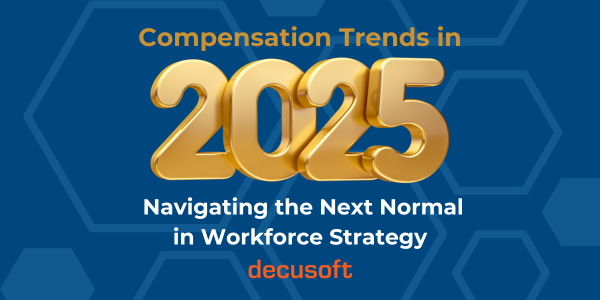The COVID-19 pandemic and the wild year that was 2020 shook up the world of employment and compensation to a startling degree. Since the virus appeared during the first quarter, unemployment spiked to record levels before dropping again into something like a normal range. Workers’ growing willingness to quit their jobs in search for new opportunities drove the labor market. As more employees departed, wages rose and employers lamented the dynamic new landscape of talent acquisition and retention.
Today, economists and executives foresee business conditions continuing their slow recovery from COVID-19’s impact. Not surprisingly, many expect significant changes to impact compensation in 2022 and beyond, while the pandemic’s effects continue to be felt over the long term. Here are some of the shifts they expect.
Increased Demand = Higher Wages
In part because of the soul-searching they undertook during pandemic’s lockdowns and travel restrictions, workers are walking away from their jobs in droves. Specifically, 2.9% of the American workforce quit in August 2021 alone – an all-time high. After working at home for long stretches of 2020 and 2021, many employees began to wonder if “this” was truly what they wanted to do with their lives.
Today’s “Great Resignation” has been driven largely by such thinking. Today, “Now Hiring” signs are everywhere. Even industries that have never before endured a candidate shortage are struggling to fill open positions.
To counter the talent shortage and discourage existing workers from jumping ship, look for many employers to increase their compensation budgets for 2021 and 2022, including retention bonuses and mid-year raises. Even employers with entry-level or other low-wage workers, who typically pay by the hour, are looking to bolster compensation in response to their workers’ willingness to leave.
Fairness Counts
At the same time, today’s workplace dynamics beg the question: What’s a fair wage, and what does “fair” mean to both employees and employers?
It should come as no surprise that businesses use higher wages to entice candidates. This is a labor market after all. But are they being unfair if they’re not compensating long-term employees with the same kind of pay scale?
Some employers say the benefits they offer veteran workers make up for the fact that new hires are richly paid. Others have established strict policies governing salary discussions, in an effort to maintain predefined ranges. A few have increased compensation for experienced employees after deciding the expense of keeping them happy – and in place – is worth any extra spending and complications with other workers.
But if these approaches are fair for the workforce, can they also be fair for employers? The question puts many companies in a quandary, especially those that can’t afford to pay current market compensation. Should they impose cutbacks, raise prices or risk losing qualified workers to competing positions jobs? A number of organizations don’t believe they have a choice.
More Than Equity
Pay isn’t the only thing spurring workers to move on. Many say they’re burned out: They feel exhausted, overworked and unappreciated, and better compensation is rarely enough to convince them to stay on. More and more, workers say their organization’s approach to equity matters, too.
This means compensation professionals must go beyond diversity, equity and inclusion programs for both candidates and current workers. Employees want to feel like they can trust their managers and coworkers. They want access to training and opportunities to improve their careers and develop their skills. And they want flexibility to work on-premise or at home, full-time or part-time, depending on their individual needs. Compensation professionals will have to address all of these often-competing issues in their plans.
Natural Disasters
There are already federal protections in place for workers who can’t physically get to their facility or perform their work because of calamities like wildfires, earthquakes, hurricanes, floods or tornadoes. Now, we can add global pandemics to the list.
The incidence of natural disasters is expected to increase, at least in the near term, as global warming and pollution spawn a higher frequency of hurricanes, more intense heat waves and crippling blizzards. Even before such adversities occur, compensation professionals should have a plan in place that ensures employees are paid for keeping the business operating, and that they’re paid appropriately depending on their circumstances.
Variable Pay for Remote Work
As the shockwaves from COVID-19 die down, some companies are rethinking their pay scales. Specifically, they’re considering whether it’s fair to pay remote employees based on the conditions of the market in which they live, or if they should base compensation on the dynamics of the wider job market or on the market where the company is based.
In addition, remote employees often assume office-related costs, thus saving the employer money. For example, they may pay for phone and internet service, utilities and office supplies, not to mention a dedicated workspace at home. Some workers say these expenses cost more than they save by not going onsite.
Which brings us to another possibility: Will employees who do have to report to the office expect to be paid more than their working-from-home colleagues, to compensate for travel time and transportation expenses? The move to hybrid work is relatively new, so it’s unclear how a mix of employees will affect compensation.
It will be interesting to see how the last 18 months will affect the next 18 months. But one thing is certain: Whether they’re small or large, temporary or permanent, changes are on the horizon for the job market, the workforce and compensation during 2022.




